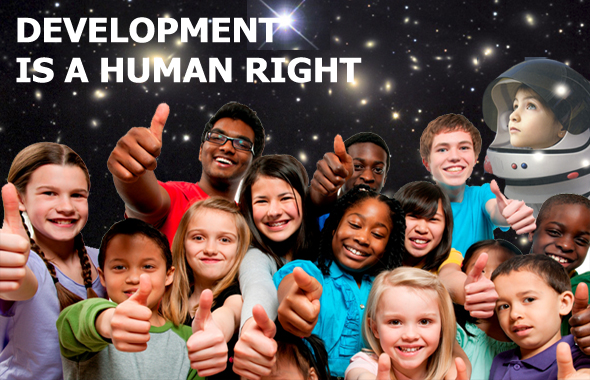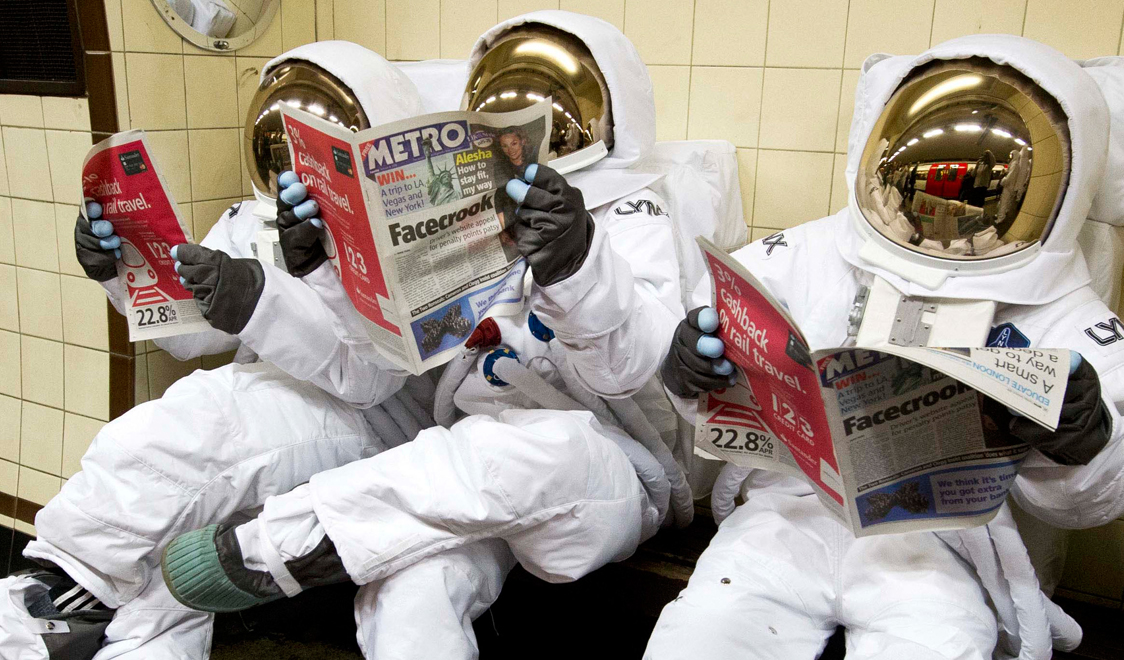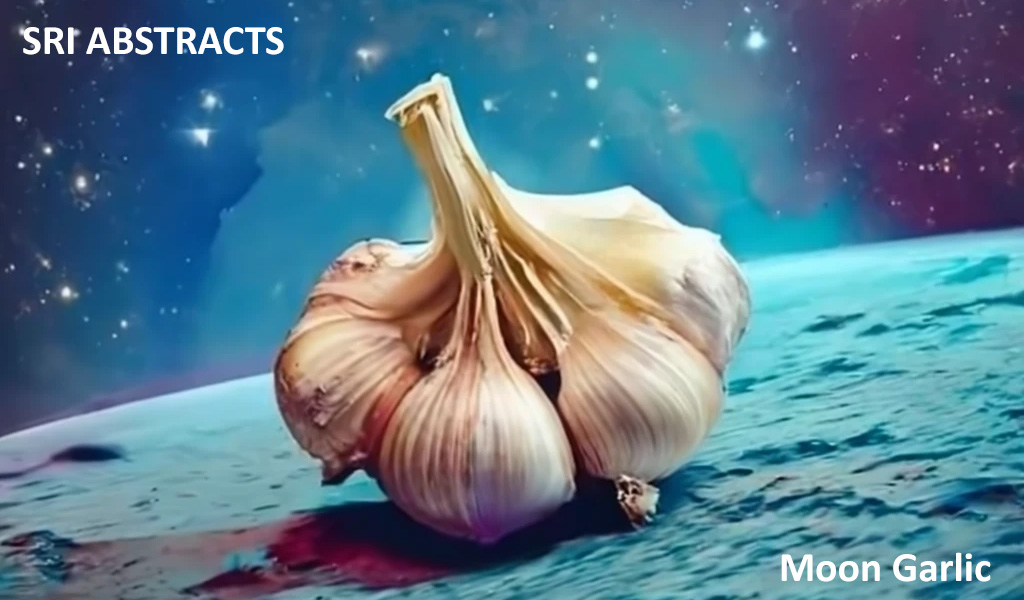[mp_row]
[mp_span col=”12″]
DEVELOPMENT IS A HUMAN RIGHT – AN OPEN LETTER TO UNITED NATIONS

SRI News #05.2016 – September 17th 2016, by A. V. Autino, with contributes by M. Perez, A. Sinclair, A. Woods
In our incoming Congress we will discuss the program for next four years, including initiatives towards United Nations, concerning the Human Right to Development and the 50th Anniversary of the 1967 Outer Space Treaty.
On the above subjects we sent an open letter to UN, while they are meeting in New York. Our analysis says that only expanding our industrial and commercial activities in space the human right to development can have a chance.
We think that a broad international collaboration is needed.
What is your opinion? Share it with us, during the Space Renaissance congress:
“FROM SPACE EXPLORATION TO SPACE SETTLEMENT”
The Space Renaissance International 2nd World Congress will be held from September 30th to October 2nd,
on skype chat, three hours per day, starting at 15.00pm, GMT
REGISTER TO PARTICIPATE TO THE CONGRESS!
(participation is free)
see the Congress Theses
In the framework of the 2nd Space Renaissance International World Congress
September 20 – October 2, 2016
OPEN LETTER TO THE UNITED NATIONS
Distinguished Participants to the 71st Session of the UN General Assembly (UNGA 71),
Distinguished Participants to the High-level segment of the General Assembly to commemorate the thirtieth anniversary of the Declaration on the Right to Development[1],
please accept our greetings and sincere wishes for a successful and productive conference!
Thirty years after the Declaration on the Right to Development[2], we have to acknowledge that many analysts paint a dismal picture of the status of civilization in spite of meaningful advances in education, longevity, civil rights, malnourishment, poverty and in other critical societal areas.
Though there are places and situations that world’s media highlight as examples of worsening conditions and inequalities and obstacles to development, UN statistics show clear and gradual improvements. Yet, there exists new threats to human development that must be dealt with, such as serious environmental issues, increasing scarcity of material and energy sources, that are becoming more and more evident and serve to enhance conflicts, terrorism and migration fluxes.
We identify the problem of a growing human population within the closed system of planet Earth as the main cause for the worsening of all the well-known global problems which concern the UN and national governments across the world. There will soon be 8 billion humans on our home planet who are facing resource shortages, mass migrations, economic and political disenfranchisement, and widespread civil unrest exacerbated by this population pressure, not to mention the huge environmental issues, general pollution and the decay of the oceans. The global financial crisis initiated in 2008, is devastating society and jeopardizing its industrial capabilities that are necessary for development.
Paragraph14. of the UN 2030 agenda[3] well summarizes such a situation, and par. 15. recalls the opportunities of this historical age: “It is also, however, a time of immense opportunity. Significant progress has been made in meeting many development challenges. Within the past generation, hundreds of millions of people have emerged from extreme poverty. Access to education has greatly increased for both boys and girls. The spread of information and communications technology and global interconnectedness has great potential to accelerate human progress, to bridge the digital divide and to develop knowledge societies, as does scientific and technological innovation across areas as diverse as medicine and energy.” This paragraph describes the great impulse to the progress of civilization that was provided by the industrial revolution, that we can see as the last act of the renaissance, initiated in 1500. Today’s industrial capabilities are under attack, by the current global crisis, and it is dramatically urgent to contrast and reverse such a crisis by relaunching industrial development, fully profiting from the fantastic new technologies that have raised in recent years.
The Declaration on the Right to Development well summarizes the humanist concept that growth -economic and cultural growth – is essential for the progress of ethics, freedom, democracy and well-being. With almost eight billion intelligent human beings, our species was never so rich, provided that we will be able to allow such a huge patrimony to realize its full value by investing in itself and continuing its progress. Enduring cultural and economic growth decreases social fear and progressively reduces the causes of conflicts.
At this moment there are two major forces fighting in the world:
- A multifaceted global crisis which is devastating our culture and paving the way to a general decadence of civilization accompanied by the emergence of populist and new feudal authoritarian regimes, as warned by Prince Zeid Ra’ad Zeid Al-Hussein[4], the current United Nations High Commissioner for Human Rights, in a recent address to the Peace, Justice and Security Foundation Gala, in The Hague.
- The forces of the renaissance – the courageous entrepreneurs who are betting their lives on new technologies and methodologies. With a trust in scientific research, and with a new pragmatism, they refuse to look too far into the future. They do not stop dreaming, but do what they can with available technologies and with technologies that are expected to appear soon.
We believe that space development is the simplest measure available to humanity that can mitigate and progressively resolve the main global risks our civilization is currently facing. When a species is close to saturating the ecological niche where it was born and evolved, there are only two choices: to expand into a greater ecological niche by utilizing the available technologies or to condemn itself to limitation, decadence and extinction. On our home planet we see a growing scarcity of basic resources and useable spaces for the development of all its citizens, whereas the expansion of humankind into the solar system will provide space and resources enough for the future development of perhaps trillions of human beings in the coming millennia. The expansion of human industrial and commercial activities in the geo-lunar space region should be kicked off between now and the year 2025 – a date that many forecasters see as the beginning of a very critical period, in which the danger of a global conflict will escalate, bringing with it unpredictable consequences. The opening of the space frontier to human development will relaunch the global economy at unprecedented rate, and will be the key element to defuse a potential World War III.
The first essential step on such road is to accelerate the development and marketing of technologies for civilian passenger transportation in space. We advocate a change of paradigm from space exploration dealt by military trained astronauts, to civilian space flight, which will allow anyone to travel into space and as convenient as taking a normal airline flight. When low cost space transportation vehicles will become available, a season of great innovation (renaissance) will be triggered and new answers to human needs will create new self-sustaining markets. History shows examples of new routes, created by explorers, followed by merchants and then used by many others. Searching for and discovering new lands are essential aspects of human nature. The exploration and discovery of the solar system represents the exciting historical age that is now before us, one that is far greater and transformative than any previous age. Opening the new frontier of extraterrestrial space is now an urgent necessity for humanity, but, until now, this process has been restricted and delayed by monopolistic interests and governmental control.
In a problem solving perspective national and international communities will expand human presence in Earth orbit, working together in peaceful cooperation and collaboration. Innovative services can be provided for space debris recovery and reuse, fueling stations, spacecraft assembly and maintenance and for global communication and educational satellite networks. Space development can quickly achieve both the near term and long term goals of exploration and settlement, while supporting the sustainability and prosperity of our global communities on Earth.
However, time is of essence: supporting the forces of the renaissance to relaunch global development for all people of Earth before the year 2025 is the duty of all persons and institutions caring for the survival and continued progress of human civilization. This giant evolutionary step requires a broad international cooperation and we invite UN to provide the necessary framework for such an unprecedented promotional action, to encourage (as we have written in our SRI 2nd World Congress Thesis 1 [5]):
- To propose that the main space agencies increase their activities in space and procure their transportation needs in an open, competitive marketplace, establishing a “free trade zone” in launch opportunities among all partners, so that the market will expand in a way that supports lower cost solutions such as reusable launch vehicles that are being developed by the private sector.
- To propose that the main space agencies become customers for space resources – for example, by buying propellant, water, or mass for radiation shielding in space and by providing a market for those resources to stimulate the private sector to supply them.
- To motivate governmental space agencies to prioritize research and technology for the unsolved problems needed for humans to live in space, on the Moon and on other celestial bodies indefinitely, such as protection from cosmic radiation, studying effects of Martian and Lunar gravity, effective artificial gravity for living in open space, faster and more economical transportation techniques, and in-situ resource extraction and utilization for the Moon, Near Earth Objects and Mars.
- To motivate governments to support — through tax discounts, grants and a friendly fiscal policy — the civilian space industry, the development of space tourism (suborbital, orbital, Moon), near Earth asteroid mining and using asteroids as space urban infrastructures, the validation of new technologies for low cost and safe access to Earth’s orbit, and the development of technological systems and new methodologies for human spaceflight.
- To convince the larger public that expanding civilization into space and giving birth to a true space renaissance is possible, convenient and urgent; and that passenger space travel will, like air travel did, create tens of millions of new jobs around the world.
- To create space renaissance investment funds to allow all savers to direct their savings into astronautical industrial enterprises.
- To limit military activities in Earth orbit to a purely surveillance operations while forbidding and preventing any lethal militarization of the space environment, as any major war is perceived to be the biggest threat to the future of human civilization, and space development is seen as the most optimistic alternative to war. Therefore, ongoing legal efforts such as the proposed Treaty on the Prevention of the Placement of Weapons in Outer Space and the Threat or Use of Force against Outer Space Objects (PPWT) and the Prevention of an Arms Race in Outer Space (PAROS) resolution deserve immediate attention and further elaboration. Any and all efforts at the international level that insure and enforce this aspect should be given the highest priority. The space environment has already proven to be an effective arena for international cooperation and, as such, it holds much promise and economic opportunity for emerging nations to collaborate with the current spacefaring nations. As economic development leads to peace and prosperity, further international cooperation and collaboration in the space arena needs to be encouraged and supported.
The 50th anniversary of the 1967 Outer Space Treaty presents the United Nations with a timely opportunity for these actions and endeavors to be given the highest consideration. We, at Space Renaissance International, are available to help with our network of experts. During the upcoming anniversary year, we are also planning events and activities that foster public discussion of these critical issues which have relevance for every citizen on planet Earth.
September, 17th 2016
Sincerely,
Adriano V. Autino, SRI, President
The Space Renaissance International Executive Committee
 Space Renaissance Australia
Space Renaissance Australia
 Space Renaissance Bosnia Herzegovina
Space Renaissance Bosnia Herzegovina
 Space Renaissance Brasil
Space Renaissance Brasil
 Space Renaissance Canada
Space Renaissance Canada
 Space Renaissance Espana
Space Renaissance Espana
 Space Renaissance France
Space Renaissance France
 Space Renaissance Germany
Space Renaissance Germany
 Space Renaissance India
Space Renaissance India
 Space Renaissance Italia
Space Renaissance Italia
 Space Renaissance Mexico
Space Renaissance Mexico
 Space Renaissance Morocco
Space Renaissance Morocco
 Space Renaissance Nederland
Space Renaissance Nederland
 Space Renaissance Nepal
Space Renaissance Nepal
 Space Renaissance Poland
Space Renaissance Poland
 Space Renaissance Russia
Space Renaissance Russia
 Space Renaissance Switzerland
Space Renaissance Switzerland
 Space Renaissance UK
Space Renaissance UK
 Space Renaissance USA
Space Renaissance USA
[English language editing by Arthur Woods]
[2] https://www.ohchr.org/Documents/Issues/Development/DeclarationRightDevelopment_en.pdf
[3] the 2030 Agenda for Sustainable Development
[4] https://www.ohchr.org/EN/NewsEvents/Pages/ZeidwarnsagainstdemagoguesinEuropeandUS.aspx
[5] https://spacerenaissance.space/wp-content/uploads/2016/08/Our-Committment-to-Astronautics-SRI-2nd-Congress-Theses-1.pdf
[/mp_span]
[/mp_row]












 Space Renaissance France (French Chapter of SRI)
Space Renaissance France (French Chapter of SRI)  Space Renaissance USA, Inc. (USA Chapter of SRI)
Space Renaissance USA, Inc. (USA Chapter of SRI) Space Renaissance (Italian Chapter of SRI)
Space Renaissance (Italian Chapter of SRI) Space Renaissance Academy
Space Renaissance Academy Space Renaissance Initiative Group
Space Renaissance Initiative Group